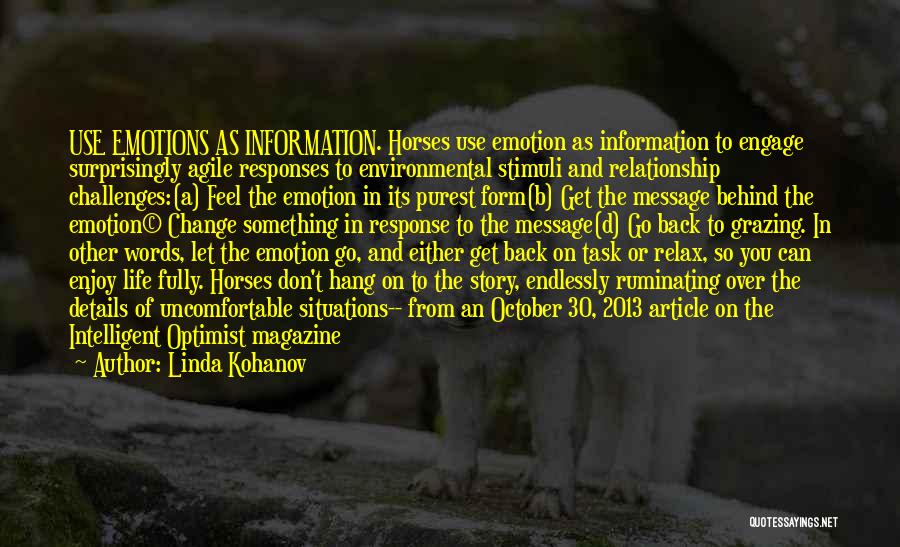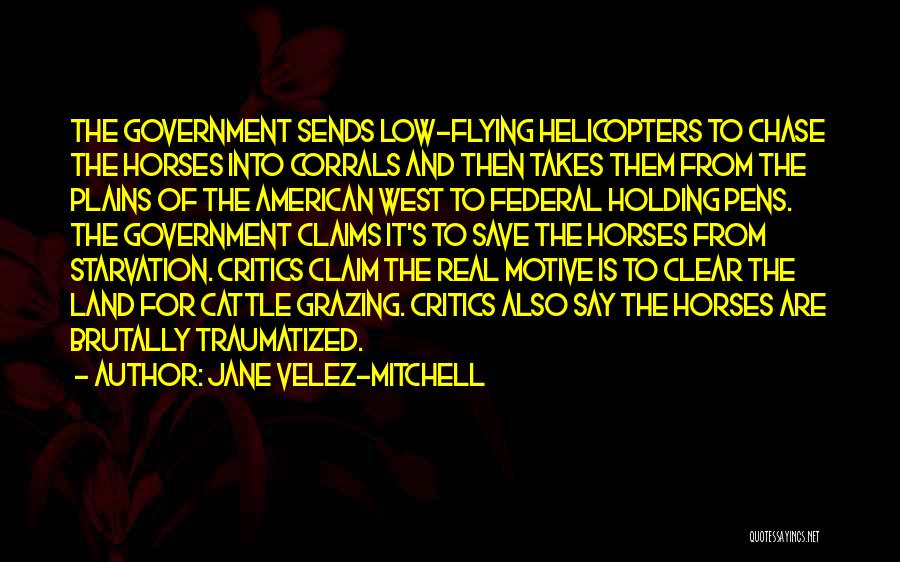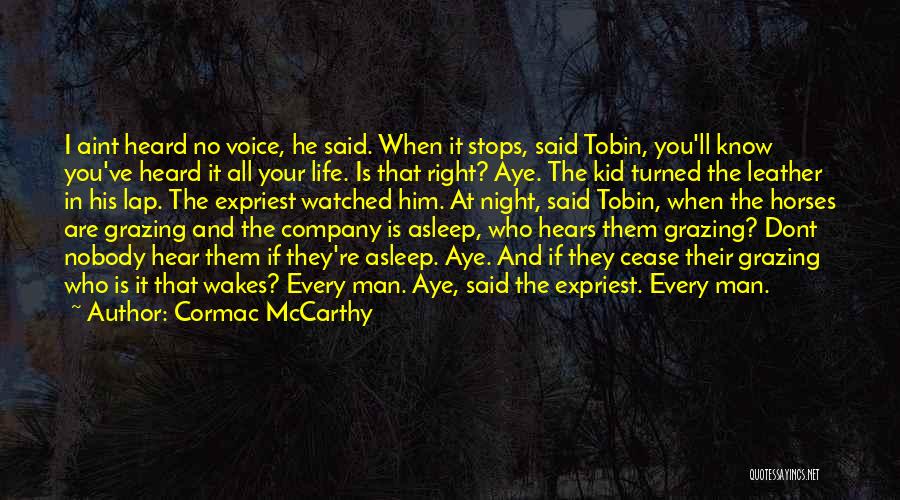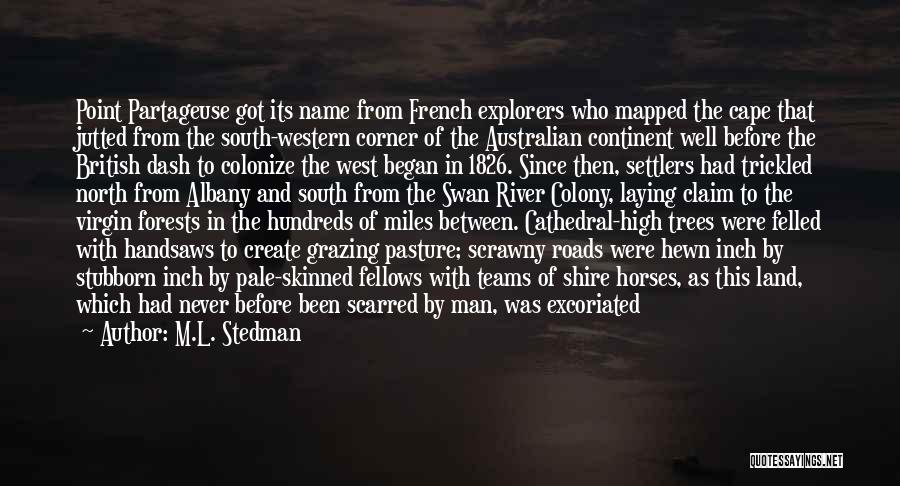Quotes & Sayings About Horses Grazing
Enjoy reading and share 4 famous quotes about Horses Grazing with everyone.
Top Horses Grazing Quotes

USE EMOTIONS AS INFORMATION. Horses use emotion as information to engage surprisingly agile responses to environmental stimuli and relationship challenges:
(a) Feel the emotion in its purest form
(b) Get the message behind the emotion
(c) Change something in response to the message
(d) Go back to grazing. In other words, let the emotion go, and either get back on task or relax, so you can enjoy life fully. Horses don't hang on to the story, endlessly ruminating over the details of uncomfortable situations
-- from an October 30, 2013 article on the Intelligent Optimist magazine — Linda Kohanov

The government sends low-flying helicopters to chase the horses into corrals and then takes them from the plains of the American West to federal holding pens. The government claims it's to save the horses from starvation. Critics claim the real motive is to clear the land for cattle grazing. Critics also say the horses are brutally traumatized. — Jane Velez-Mitchell

I aint heard no voice, he said. When it stops, said Tobin, you'll know you've heard it all your life. Is that right? Aye. The kid turned the leather in his lap. The expriest watched him. At night, said Tobin, when the horses are grazing and the company is asleep, who hears them grazing? Dont nobody hear them if they're asleep. Aye. And if they cease their grazing who is it that wakes? Every man. Aye, said the expriest. Every man. — Cormac McCarthy

Point Partageuse got its name from French explorers who mapped the cape that jutted from the south-western corner of the Australian continent well before the British dash to colonize the west began in 1826. Since then, settlers had trickled north from Albany and south from the Swan River Colony, laying claim to the virgin forests in the hundreds of miles between. Cathedral-high trees were felled with handsaws to create grazing pasture; scrawny roads were hewn inch by stubborn inch by pale-skinned fellows with teams of shire horses, as this land, which had never before been scarred by man, was excoriated and burned, mapped and measured and meted out to those willing to try their luck in a hemisphere which might bring them desperation, death, or fortune beyond their dreams. — M.L. Stedman





